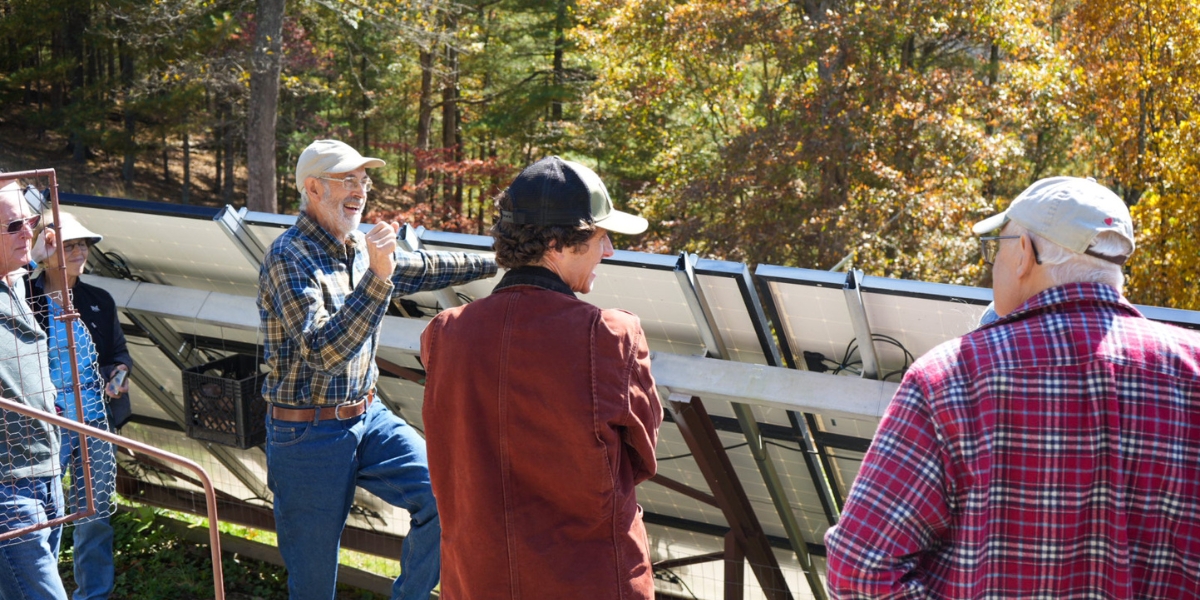By John McFerrin
The West Virginia Highlands Conservancy has made formal comments to the West Virginia Public Service Commission on the proposal to change the way it credits homeowners for the electricity they produce with their own solar system.
Almost all home solar systems are connected to the electricity grid. During the day, the homes produce more electricitly than they need. This electricity goes into the electrical grid, available for use by other customers.
At night, and on cloudy days, these homeowners use more electricity than their systems produce. During those times, they import electricity from the grid. If, at the end of the month, the homeowner has used more than he or she has exported to the grid, the homeowner is billed for the excess. The system is known as net metering.
Under the current system, the electricity the homeowner takes from the grid is the same price as the electricity which he or she supplies to the grid. The electric company credits the homeowner for the electricity supplied to the grid from the homeowner’s system at the retail rate for electricity. It then charges the homeowner for electricity that the homeowner takes from the system produces at the same retail rate. In most situations, the amounts taken from the grid and supplied to the grid are about the same so the homeowner’s bill for electricity (not considering the service charge that First Energy imposes) is close to zero.
The Public Service Commission is considering a request by First Energy to change that. First Energy wants to start crediting homeowners for the electricity they send to the grid at the wholesale price. It would still charge those same homeowners the retail price for electricity it delivers to them. The result would be that the electricity leaving a home would be considered worth about half as much as the electricity entering the same home.
On behalf of its members, WVHC has filed formal comments opposing the change. In those comments, WVHC emphasized that having electricity produced by solar power increases the stability of the electrical grid. It also helps fight climate change. The change which the PSC is considering would cripple, if not kill, the solar power industry in West Virginia. For these and other reasons WVHC opposed the changes.

